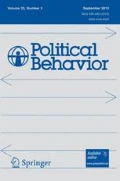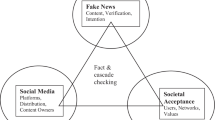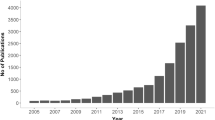Abstract
This article seeks to advance our understanding of the influence of attack advertising on the public in two ways. First, we examine whether the content of individuals' memory differs when exposed to positive or attack ads. Critics of attack advertising fear that “negativity” has pernicious effects on the citizenry, ranging from lessening people's faith in the political process to decreasing people's willingness to participate in elections. This article extends this general line of inquiry. How do attacks affect memory? Do they lead people to remember more things about the ads? Do they affect the accuracy of people's memories? Questions about memory are important from an information processing perspective, since the stored information is used to guide and shape behavior. We find that subjects' recall as many things about positive ads as attack ads. However, when taking a closer look at what they recall, it turns out that attack ads yield many more inaccurate memories than do positive ads. We discuss the implications of these findings. The second way this research advances the field is that we employ an experimental design that uses radio ads as our stimulus. Nearly all the work in this field has focused on television. Yet radio serves as an invaluable way for candidates to communicate with voters, especially in nonpresidential elections. We are a multimedia society, and we need to broaden our knowledge of the impact of political ads beyond television, especially if we want to forge a better understanding of how advertising works in state and local elections.
Similar content being viewed by others
REFERENCES
Anderson, John. R. (1983). A spreading activation theory of memory. Journal of Verbal Learning and Verbal Behavior, 22: 261–295.
Ansolabehere, Stephen D., and Iyengar, Shanto (1995). Going Negative. New York: Free Press.
Ansolabehere, Stephen D., Iyengar, Shanto and Simon, Adam (1999). Replicating experiments using aggregate and survey data. American Political Science Review 93: 901–910.
Ansolabehere, Stephen D., Iyengar, Shanto, Simon, Adam, and Valentino, Nicholas (1994). Does attack advertising demobilize the electorate? American Political Science Review 88:829–38.
Barker, David C. (2002). Rushed to Judgment? New York: Columbia University Press.
Bartlett, F. C. (1932). Remembering: A Study in Experimental and Social Psychology. Cambridge: Cambridge University Press.
Brians, Craig L., and Wattenberg, Martin (1996). Campaign issue knowledge and salience. American Journal of Political Science 40: 172–193.
Brewer, W. F. (1977). Memory for the pragmatic implication of sentences. Memory and Cognition 5: 673–678.
Buchanan, Bruce (1996). Renewing Presidential Politics. New York: Roman and Littlefield.
Buchanan, Bruce (2000). Regime support and campaign reform. In Larry Bartels and Lynn Vavreck (eds.), Campaign Reform, pp. 173–200. Ann Arbor: University of Michigan Press.
Cappella, Joseph, and Jamieson, Kathleen Hall (1997). The Spiral of Cynicism. New York: Oxford University Press.
Clinton, Joshua, and Lipinski, John S. (2003). Negative ads and turnout: Experimental results from the 2000 presidential elections. Journal of Politics, forthcoming.
Collins, A. M., and Loftus, Elizabeth F. (1975). A spreading activation theory of semantic processing. Psychological Review 82: 407–428.
Druckman, James N., and Lupia, Arthur (2000). Preference formation. Annual Review of Political Science 3: 1–24.
Finkel, Steven, and Geer, John G. (1998). A spot check. American Journal of Political Science 42: 573–595.
Freedman, Paul, and Goldstein, Kenneth (1999). Measuring media exposure and the effects of negative campaign ads. American Journal of Political Science 43: 1189–1208.
Garand, James C., and Graddy, Kristy L. (2001). Explaining the mediated effects of negative campaign advertising on voter turnout. Paper delivered at the 2001 Midwest Political Science Association, Chicago.
Geer, John G. (2000). Assessing attack advertising: a silver lining. In Larry M. Bartels and Lynn Vavreck (eds.), Campaign Reform, pp. 62–78. Ann Arbor: University of Michigan Press.
Geer, John G., and Lau, Richard R. (2001). Simulation and theory: a new way to model the effects of campaigns. unpublished manuscript.
Harris, R. J. (1974). Memory and comprehension of implications and inferences of complex sentences. Journal of Verbal Learning and Verbal Behavior 13: 626–637.
Herrnson, Paul (2000). Congressional Elections, 3rd edition. Washington, DC: Congressional Quarterly Press.
Hitchon, Jacqueline C., and Chang, Chingching (1995). Effects of gender schematic processing on the reception of political commercials for men and women candidates. Communication Research 22: 430–458.
Humbert, Marc (2002). McCall stresses black roots in new radio ad. AP wire services, August 9.
Humphrey, Tom (2002). Alexander radio ads tout conservative side. Knoxville News-Sentinel. March 27, b3.
Iyengar, Shanto, and McGuire, William J. (1993). Explorations in Political Psychology. Durham, NC: Duke University Press.
Jacobson, Gary C. (2000). The Politics of Congressional Elections, 5th edition. New York: Longman.
Jamieson, Kathleen Hall (2000). Everything You Think You Know about Politics ⋯ And Why You are Wrong. New York: Basic Books.
Kahn, Kim F., and Kenney, Patrick J. (1999). Do negative campaigns mobilize or suppress turnout? American Political Science Review 93: 877–890.
Kuklinski, James H. (2002). Thinking about Political Psychology. Cambridge: Cambridge University Press.
Kuklinski, James H., and Hurley, Norman L. (1994). On hearing and interpreting political messages: a cautionary tale of citizen cue-taking. The Journal of Politics 56: 729–751.
Kuklinski, James H., Luskin, Robert C., and Bolland, John (1991). Where is the schema? Going beyond the "S" word in political psychology. The American Political Science Review, 85: 1341–1356.
Lang, A., Newhagen, J., and Reeves, B. (1996). Negative video as structure: emotion, attention, capacity, and memory. Journal of Broadcasting and Electronic Media 40: 460–477.
Lau, Richard R. (1985). Two explanations for negativity effects in political behavior. American Journal of Political Science 29: 119–138.
Lau, Richard, and Pomper, Gerald M. (2001). Effects of negative campaigning on turnout in U.S. senate elections, 1988–1998. Journal of Politics 63: 804–819.
Lau, Richard R., and Sears, David O. (1986). Political Cognition. Hillsdale, NJ: Lawerence Erlbaum Associates.
Lau, Richard R., and Sigelman, Lee (2000). Effectiveness of negative political advertisements. In James A. Thurber, Candice J. Nelson, and David A. Dulio (eds.), Crowded Air Waves, pp. 17–29. Washington: Brookings.
Lau, Richard, Sigelman, Lee, Heldman, Caroline, and Babbit, Paul (1999). The effects of negative political advertisements: a meta analysis. American Political Science Review 93: 851–876.
Lawton, L. Dale, and Freedman, Paul (2001). Beyond negativity: advertising effects in the 2000 Virginia senate race. Paper delivered at the 2001 Midwest Political Science Association, Chicago.
Lodge, Milton, and Hamill, Ruth (1986). A partisan schema for political information processing. American Political Science Review 80: 505–519.
Lodge, Milton, and McGraw, Kathleen (1995). Political Judgment. Ann Arbor: University of Michigan.
Lodge, Milton, McGraw, Kathleen, Stroh, and Patrick (1989). Impressive driven model of candidate evaluation. American Political Science Review 83: 399–419.
Lodge, Milton, Steenbergen, Marco R., and Brau, Shawn (1995). The responsive voter: campaign information and the dynamics of candidate evaluation. American Political Science Review 82: 309–326.
Lodge, Milton, and Taber, Charles (2000). Three steps toward a theory of motivated politcal reasoning. In Arthur Lupia, Mathew McCubbins and Samuel Popkin, (eds.), Elements of Reasoning. Cambridge: Cambridge University Press.
Loftus, Elizabeth F. (1993). The reality of repressed memories. American Psychologist 48: 515–537.
Loftus, Elizabeth F. (1979). Eyewitness Testimony. Cambridge, MA: Harvard University Press.
Loftus, Elizabeth F., and Read, J. D. (1994). Psychotherapy and memories of childhood sexual abuse: A cognitive perspective. Applied Cognitive Psychology 8: 281– 338.
Lupia, Arthur, McCubbins, Mathew, and Popkin, Samuel (2000). Elements of Reason. Cambridge: Cambridge University Press.
Massaro, Dominic W., and Cowan, Nelson (1993). Information processing models: microscopes of the mind. In Lyman Porter, and Mark R. Rosenzweig, (eds.), The Annual Review of Psychology Vol. 44. Palo Alto: Annual Reviews Inc.
Matlin, Margaret (2002). Cognition, 5th edition. New York: International Thomson Publishing.
McGraw, Kathleen, and Lodge, Milton (1996). Review essay: political information processing. Political Communication 13: 131–138.
McGraw, Kathleen, Lodge, Milton, and Jones, Jeffery (2001). The pandering politicians of suspicious minds. Unpublished manuscript, Ohio State University.
Miller, George (1956). Human memory and the storage of information. IRE Transactions on Information Theory IT-2, 129–137.
Newhagen, J., and Reeves, B. (1992). The evening's bad news: effects of compelling negative television news images on memory. Journal of Communication 42: 25–41.
Price, Vincent, and Zaller, John (1993). Who gets the news? Alternative measures of news reception and their implications for research. Public Opinion Quarterly 57: 133–164.
Pritchert, James. W., and Anderson, Richard. C. (1977). Taking different perspectives on a story. Journal of Educational Psychology 69: 309–315.
Rau, Jordan (2002). First ad hits the airways. Newsday, May 21st, a21.
Reeves, B., Newhagen, J., Maibach, E., Basil, M., and Kurz, K. (1991). Negative and positive television messages: effects of message type and context on attention and memory. American Behavioral Scientist 34: 679–694.
Riker, William (1996). Strategy of Rhetoric: Campaigning for the American Constitution. New Haven: Yale University Press.
Robison, Clay (2002). Cornyn promises in ad to fight for water rights. The Houston Chronicle, April 26th, p.42.
Roediger, Henry L. (1996). Memory illusions. Journal of Memory and Language 35: 76–100.
Schulberg, Pete (1996). Radio Advertising: The Authoritative Handbook, 2nd edition. New York: McGraw Hill.
Schvaneveldt, Roger W. (1990). Pathfinder Associative Networks: Studies in Knowledge Organization. Norwood, NJ: Ablex Publishing Corp.
Shapiro, Michael A., and Rieger, Robert H. (1992). Comparing positive and negative political advertising on radio. Journalism Quarterly 69: 135–145.
Solso, Robert L. (2001). Cognitive Psychology, 6th edition. Needham Heights, MA: Allyn & Bacon.
Valentino, Nicholas (1999). Crime news and the priming of racial attitudes during evaluations of the president. Public Opinion Quarterly 63: 293–320.
West, Darrell (2001). Air Wars, 3rd edition. Washington, DC: Congressional Quarterly Press.
Author information
Authors and Affiliations
Rights and permissions
About this article
Cite this article
Geer, J.G., Geer, J.H. Remembering Attack Ads: An Experimental Investigation of Radio. Political Behavior 25, 69–95 (2003). https://doi.org/10.1023/A:1022904428357
Issue Date:
DOI: https://doi.org/10.1023/A:1022904428357




